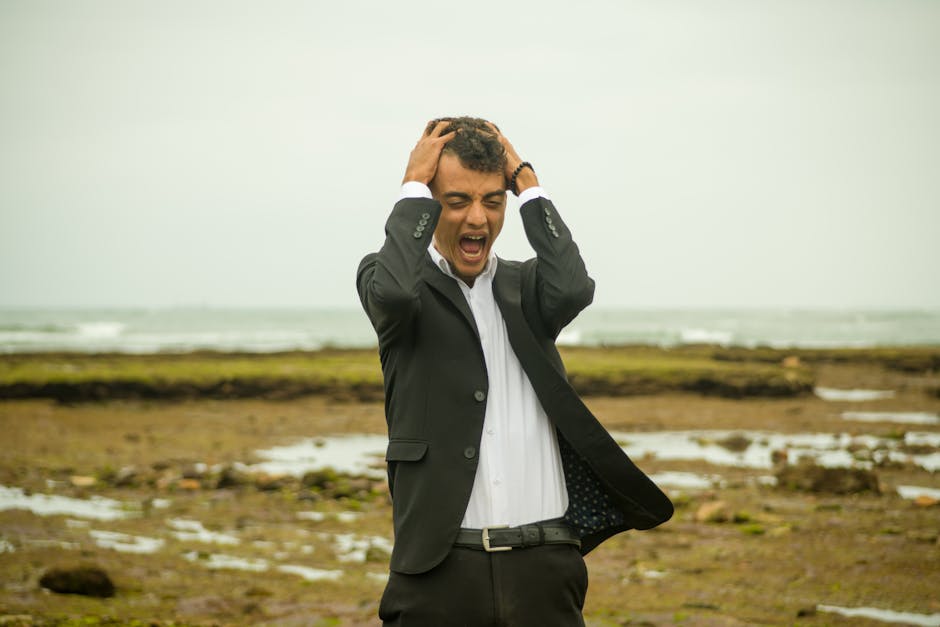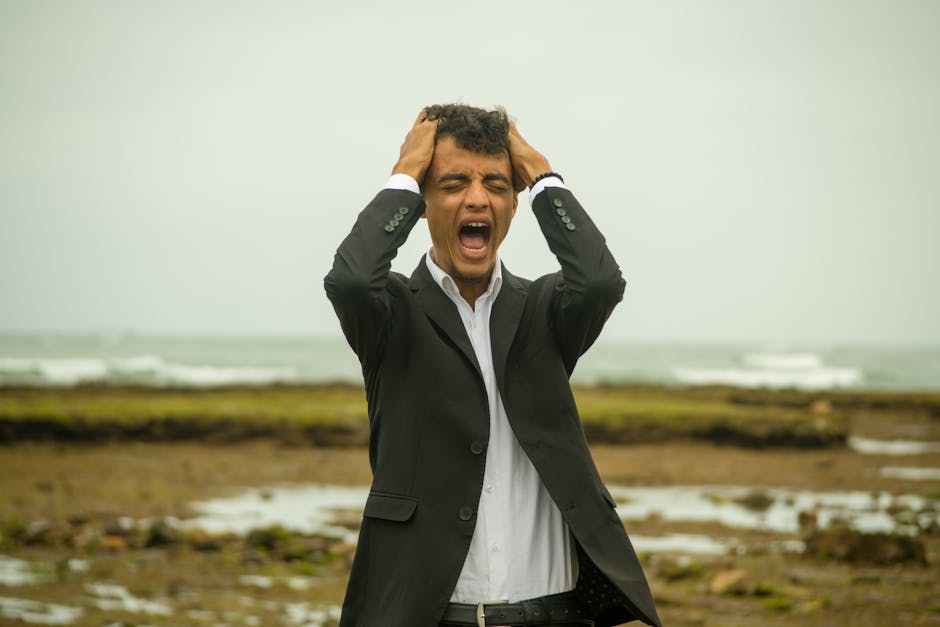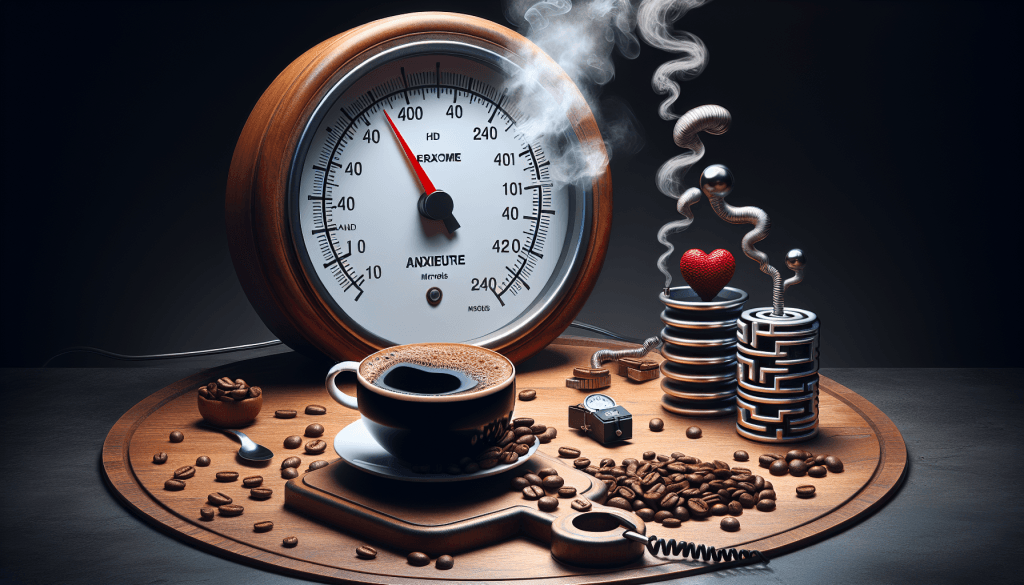How Does Caffeine Affect Anxiety And Stress Levels?
Caffeine, the world’s most popular stimulant, can be a double-edged sword when it comes to mental health. While it’s a go-to for millions seeking an energy boost, it can also amplify feelings of anxiety and stress in certain individuals. Understanding how caffeine interacts with the brain and body is crucial for anyone navigating the delicate balance between productivity and peace of mind.
Keep reading to uncover the science behind caffeine’s effects on anxiety and stress, and learn how to manage your consumption for better mental well-being.
Key Takeaways
- Caffeine is a widely consumed stimulant found in coffee, tea, energy drinks, and more.
- It can heighten anxiety symptoms like restlessness, nervousness, and a racing heart.
- Excessive caffeine may worsen stress levels by increasing cortisol, the stress hormone.
- Managing caffeine intake can help reduce its negative impact on mental health.
- Alternatives like herbal teas and decaffeinated drinks offer gentler options for relaxation.
Introduction to Caffeine and Its Effects
Overview of Caffeine as a Stimulant
Caffeine is a natural stimulant that primarily affects the central nervous system. It works by blocking adenosine, a chemical in the brain that promotes relaxation and sleepiness. This is why a cup of coffee can make you feel alert and ready to tackle the day.
However, this same mechanism can also lead to overstimulation, especially when consumed in large amounts. For some, this can mean jittery hands, a pounding heart, or even a full-blown anxiety attack.
Common Sources of Caffeine in Daily Life
Caffeine is everywhere. Coffee and tea are the most obvious sources, but it’s also found in energy drinks, sodas, chocolate, and even some medications.
For instance, a single energy drink can contain as much caffeine as three cups of coffee. Hidden sources like chocolate bars or over-the-counter pain relievers can sneak caffeine into your system without you even realizing it.
Importance of Understanding Caffeine’s Impact on Mental Health
While caffeine can be a lifesaver during a long workday, its effects on mental health shouldn’t be ignored. For individuals prone to anxiety disorders, even small amounts can trigger uncomfortable symptoms.
Understanding how caffeine interacts with your body is key to making informed choices about your consumption.

The Link Between Caffeine and Anxiety
How Caffeine Stimulates the Central Nervous System
Caffeine is like a gas pedal for your brain. It increases the release of dopamine and adrenaline, chemicals that make you feel energized and focused.
But there’s a catch. This heightened state of alertness can tip over into anxiety, especially if your body is already under stress.
Caffeine’s Role in Triggering Anxiety Symptoms
Restlessness and Nervousness
Ever felt like you couldn’t sit still after a strong cup of coffee? That’s caffeine at work. It can make you feel restless, fidgety, and unable to concentrate.
Increased Heart Rate and Palpitations
Caffeine can also speed up your heart rate, mimicking the physical symptoms of an anxiety attack. For those already dealing with panic disorders, this can be particularly distressing.
If you’ve ever wondered about the physiological mechanisms behind these symptoms, check out this detailed breakdown of what causes panic attacks.
Individuals Predisposed to Anxiety Disorders and Their Sensitivity to Caffeine
People with generalized anxiety disorder (GAD) or panic disorder are often more sensitive to caffeine. Even a small amount can exacerbate their symptoms, making it harder to manage their condition.
For tips on managing anxiety effectively, this guide on reducing anxiety and stress offers practical advice.

Caffeine’s Impact on Stress Levels
Short-Term Effects of Caffeine on Stress Response
In the short term, caffeine can make you feel more alert and capable of handling stress. However, this effect is often temporary.
Once the caffeine wears off, you may experience a crash, leaving you feeling more stressed and fatigued than before.
Long-Term Implications of Excessive Caffeine Consumption on Stress Management
Over time, excessive caffeine intake can make it harder for your body to regulate stress. Chronic overstimulation can lead to burnout, irritability, and difficulty sleeping—all of which worsen stress levels.
The Role of Cortisol in Caffeine-Induced Stress
Caffeine increases the production of cortisol, the hormone responsible for your body’s stress response. While a little cortisol is helpful in emergencies, too much can leave you feeling constantly on edge.
For more on how to manage stress and anxiety, explore this resource on simple anxiety relief techniques.

High-Caffeine Products and Their Risks
Energy Drinks and Their Contribution to Anxiety and Stress
Energy drinks are a major culprit when it comes to caffeine overload. Packed with sugar and stimulants, they can cause a rapid spike in energy followed by an equally dramatic crash.
Strong Coffee Blends and Their Effects on Mental Health
Some coffee blends are so strong they could wake the dead—or at least make you feel like a zombie afterward. High-caffeine coffees can trigger anxiety symptoms even in people who don’t normally struggle with mental health issues.
Hidden Sources of Caffeine in Everyday Products
Caffeine isn’t just in drinks. It’s also in snacks, desserts, and even some skincare products. Always check labels if you’re trying to limit your intake.

Managing Caffeine Consumption to Reduce Anxiety and Stress
Monitoring Individual Caffeine Tolerance Levels
Everyone’s tolerance for caffeine is different. Some people can drink espresso at midnight and sleep like a baby, while others feel jittery after a single cup of tea.
Pay attention to how your body reacts and adjust your intake accordingly.
Gradual Reduction of Caffeine to Avoid Withdrawal Symptoms
If you decide to cut back, do it gradually. Quitting cold turkey can lead to withdrawal symptoms like headaches, fatigue, and irritability.
Alternatives to Caffeine for Stress Relief
Herbal Teas
Herbal teas like chamomile or peppermint are caffeine-free and can help you relax without the jitters.
Decaffeinated Beverages
Decaf coffee and tea offer the same comforting rituals without the anxiety-inducing effects of caffeine.
For more ideas on managing stress naturally, check out this guide on managing anxiety and panic attacks.
Conclusion
Recap of Caffeine’s Effects on Anxiety and Stress
Caffeine can be both a friend and a foe. While it boosts energy and focus, it can also heighten anxiety and stress, especially in sensitive individuals.
Importance of Mindful Caffeine Consumption for Mental Well-Being
By understanding your body’s limits and making mindful choices, you can enjoy caffeine without letting it take a toll on your mental health.
Encouragement to Explore Healthier Alternatives and Habits
Consider swapping your morning coffee for a calming herbal tea or cutting back on energy drinks. Small changes can make a big difference in how you feel.
For more insights into how to manage anxiety and stress, explore this helpful resource on reducing anxiety naturally.

By taking control of your caffeine intake, you can strike a balance between staying energized and staying calm. After all, life’s too short to spend it feeling wired and worried!
Caffeine and Anxiety: Your Go-To FAQ for Understanding Its Impact on Stress Levels
What is caffeine and how does it affect the body?
Caffeine is a natural stimulant found in coffee, tea, and many other beverages. It works by blocking adenosine receptors in the brain, which helps you feel more awake and alert. However, it can also increase heart rate and stimulate the release of stress hormones like cortisol and adrenaline, which may impact anxiety levels in some individuals.
Can caffeine directly cause anxiety?
Caffeine doesn’t directly cause anxiety, but it can exacerbate symptoms in those who are prone to it. High doses of caffeine may lead to restlessness, jitteriness, and an increased heart rate, all of which can mimic or worsen anxiety symptoms.
How does caffeine affect stress levels?
Caffeine can temporarily boost energy and focus, but it also triggers the release of stress hormones like cortisol. While this may help in short bursts, excessive caffeine consumption can lead to heightened stress levels over time, especially if consumed in large amounts or late in the day.
Are some people more sensitive to caffeine than others?
Yes, caffeine sensitivity varies from person to person. Factors like genetics, age, weight, and tolerance levels play a role. People with anxiety disorders or a low tolerance for stimulants may experience stronger effects from even small amounts of caffeine.
Does caffeine affect sleep, and can this worsen anxiety?
Caffeine can interfere with sleep by delaying the onset of sleep or reducing its quality. Poor sleep is closely linked to increased anxiety, so consuming caffeine late in the day can indirectly worsen anxiety symptoms by disrupting your rest.
Are there any benefits of caffeine for mental health?
In moderate amounts, caffeine can improve focus, alertness, and even mood for some individuals. However, these benefits are highly dependent on personal tolerance and should be balanced against any negative effects on anxiety or stress levels.
How much caffeine is considered safe for someone with anxiety?
The general recommendation is to limit caffeine intake to 200-400 mg per day (roughly 2-4 cups of coffee). However, individuals with anxiety may benefit from consuming less or avoiding caffeine altogether to prevent exacerbating their symptoms.
Are there caffeine-free alternatives for boosting energy?
Yes, there are several caffeine-free options to boost energy, such as herbal teas, hydration, exercise, and consuming nutrient-rich foods. Practices like mindfulness and deep breathing can also help improve focus and reduce stress without relying on stimulants.
Can reducing caffeine intake help manage anxiety and stress?
For many people, reducing or eliminating caffeine can significantly improve anxiety and stress levels. Gradually cutting back on caffeine can help minimize withdrawal symptoms while allowing the body to adjust to lower levels of stimulation.
What are some signs that caffeine might be worsening my anxiety?
Signs include increased heart rate, restlessness, jitteriness, trouble sleeping, and feeling more irritable or on edge after consuming caffeine. If you notice these symptoms, it may be worth evaluating your caffeine intake and its impact on your mental health.



